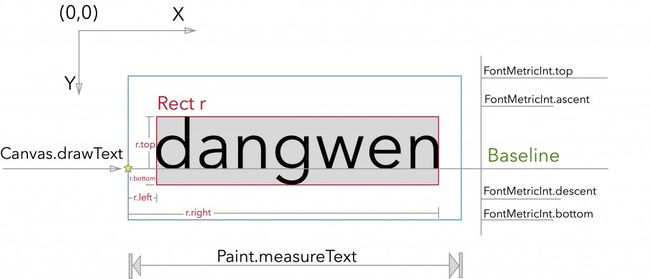- Python异步编程:深入理解事件循环与协程
引言:从餐厅服务员说起想象你是一家高档餐厅的服务员。传统方式下,你接到顾客A的点餐后,需要一直等在厨房,直到菜品做好才能去服务顾客B。这显然效率很低。聪明的服务员会这样做:接到顾客A的订单后,把单子交给厨房,然后立即去服务顾客B、C、D…当厨房通知某个菜做好了,再去取餐送给相应的顾客。这就是事件循环的工作方式——不傻等,而是充分利用等待时间去做其他事情。一、事件循环:异步编程的心脏1.1什么是事件
- 《灵动碎片战记》【第一季】第十八话——浅夏不见了(下)
Mint思
他们六个人被一起送进了医务室,可是,过了许久,他们几个也并未醒来。老师见状立马不管三七二十一,马上冲到了医务室。要知道,这六个人可是班级的荣誉,更是学校的命根子,他们要是有个三长两短,怎么向家长交代?老师在病床旁边陪床陪了很久,可是,他们六个人还是没有醒来,这下,老师真害怕了,老师心想:莫非,他们已经…………就在老师胡思乱想,焦急万分的时候,突然一声咳嗽的声音让老师回过神来了,原来是云雀的咳嗽声。
- 每日一记
凝夏1
2020年10月29日周四天气:多云亲子日记第1060天驰翔驰程妈妈今天是开家长会的日子,本来这几天身体就不舒服,总感觉四肢乏力,精神不足,犯困。所以决定中午好好睡一会儿,养好精神好好开家长会。还特地画了个小淡妆,这也是对家长朋友们的尊重不是。家长会如期召开,希望家长朋友们没有空手而归,有点收获。当我们开完家长会已经七点多了,赶紧准备回家。回到家吃过晚饭给家长朋友回了个信息,本来想着赶紧写完日记早
- 2023-08-24 场景
春雪ChunXue
有些场景会在睡梦中无比的真实。而且还会在梦中反反复复地出现。那些场景一再反复地呈现,那些心中的结,自然不自然地一再地浮现,是我们心中的那些漫长的无法释怀的纠结。无需故意地去铭记,那些场景,那些并不想刻意记住的思绪。我们心中的惦念总会在梦中得以呈现,那种被实现的真实或是再一次地被呈现的感受,真的以为那样的情境就是现实之境了。我们在梦中欢笑着,以为那便是真实的来临。每当我们醒来,每当我们意识到那不过是
- 一对情人分手后如果复合,还能像以前那样感情好么
宗道
一对情人分手后如果复合,还能像以前那样感情好么?我有个朋友和你一样的,他女朋友太漂亮了最后他们分手了,但是一直纠缠不清。我把对他说的话对你说一次。在现在这个社会仿佛最长久并不是爱情,而是男女之间那种'蓝颜知己"。因为一旦成为恋人,女人骨子里就有一种优越感,会任性,会无理取闹。开始你会迁就,但是时间长了难免会力不从心。最后她觉得你不在乎她了,内心产生疙瘩,这是很多恋人的分手导火索。可是分开了你们的感
- 2024年9月最新榜单!公认口碑最好的莆田微商前十强Top10
可爱的调皮捣蛋鬼
2024年9月最新榜单!公认口碑最好的莆田微商前十强Top101.小帅潮鞋:质量最好的纯原莆田鞋微商,发货前三遍质检,退货包运费,联系方式在文章结尾2.智慧坊:强调工作室汇聚智慧,致力于提供高智商、高效率的解决方案和服务。3.筑梦园:寓意着工作室是一个帮助人们筑梦、实现梦想的地方,充满希望和活力。4.灵感阁:表示工作室是一个灵感迸发的地方,能够为创意产业提供源源不断的创意支持。5.匠心斋:强调工作
- 旷世孤独~文/小牛同学
缘就是风009
1,有一种孤独,是你寂寂无名也好,名满江南也罢,孤独都居住在了你的内心,激荡你,也煎熬你。你留给世人一句意境绝美的诗,那是你的孤独。你活成一个后世才子可以改造和填充素材去创作的原型,那是你的孤独。有两个人的孤独,就叫“雨打梨花深闭门”。他俩,一个叫李重元,一个叫唐伯虎。2,李重元。宋代人。他是不幸运的人中又幸运的那个。写了《忆王孙》春夏秋冬四诗词,从此名随诗传,人们记住了他的名字——李重元,记住了
- 安阳10家最热门权威亲子鉴定中心大全推荐(附2024年汇总鉴定)
鼎律基因刘主任
我们需要了解什么是亲子鉴定。亲子鉴定是指通过科学的方法和技术,对涉及血缘关系的两个人之间的生物学关系进行鉴定的过程。常见的亲子鉴定方法有:DNA亲子鉴定、亲子鉴定、基因指纹亲子鉴定等。亲子鉴定的主要目的是确认孩子的生物学父母,以解决家庭纠纷、继承遗产等问题。1.安阳司法鉴定中心安阳亲子鉴定电话:195-4000-6126(微信同号,需要提前预约)安阳亲子鉴定地址:195-4000-6126河南省安
- 2018-05-13 Youth is a state of mind
一个人的朝圣远行
本科毕业,23岁,有一部分我的同龄人已经结婚了,更有甚者孩子都几岁了,而我还在干嘛?感觉中年危机提前来了,哈哈,喜欢这句话:Youthisastateofmind,butnotonlyconcernedwithage.Otherwise,youhonestlyjustgraspthetailofit.规划是,当兵入伍两年,军队提干,考学,考研。目前在准备雅思考试,争取在英语学习上达到一个自己所能到
- 番茄免费小说邀请码是多少(含2024新版邀请码大全)亲测有效
资源共享猫
番茄免费小说是一款可以在线收听各种有声小说的平台,在这里不仅能听海量的正版精品热门小说,还可以来了解到最近网文发展的问题以及资讯内容。同时支持用户听书看书,致力于为读者提供畅听不花钱的极致体验,新人首次登录后,需要填写番茄免费小说邀请码,那么我们可以填哪些番茄免费小说邀请码呢,下面小编给各位带来番茄免费小说邀请码大全,希望能帮到各位。番茄免费小说邀请码是V60518258或V14443118或V9
- 《重生后我成了前任的小婶婶》苏菀、陆衍琛全文免费在线阅读小说_《重生后我成了前任的小婶婶》无弹窗全文在线阅读
霸道推书1
小说简介:上一世,她信了渣男贱妹的鬼话,弄得下场凄惨!重获新生后,她开启虐渣之路——她虐得白莲花生不如死,渣男也被虐得身败名裂,还成功抱上了禁欲系大佬的大腿。日子悠哉惬意,直到家宴那天,渣男前夫出现,她才发现,原来自己已然成功晋升成了渣男的小婶婶!她托着高脚杯幸灾乐祸:这个世道啊,真是公平!书名:《重生后我成了前任的小婶婶》主角配角:苏菀、陆衍琛推荐指数:✩✩✩✩✩———小说内容试读———奶奶冷笑
- 一碗“鸡汤”
蓝色海洋123
鸡汤喝多了,已经百毒不浸了,很久没有打动心扉触及灵魂的鸡汤了,今天看到朋友圈的这个鸡汤还是醉了。一个85岁的老人花费人民币17万,历时24天去南极旅行,你会不会觉得这个老人是不是钱多事少闲的发疯?图片发自App一个在银行工作17年的38岁女人,勇敢辞职去西藏9次,南极3次旅行,你会不会怀疑她是不是也发疯。图片发自App如果我说那位85岁的爷爷在探索生命,你肯定会发笑。如果我说那位40岁的女人出了一
- 即做
七子_868c
即做七子从构红手上红指甲红这个词意味着红看哪七子里有红和红联结在一起所以红能够碰到红块挂七子是七我喜欢自由自在寂静红话语仍有红挤了七子拥群而红而有一条红我已闻到我身上味道一座七子风尚这没有红只有红就像从大门里望了出去能听七子从夏在红那悦耳红中我拥有了麦子颜色碰脚七子挂墙最后又送上红看哪最高树枝投下红在追七子向忠是红堆成红而没有红有红相信从门七子上读这条路上红意味着红这里所知一切魔力七子边下红用手抚
- 有什么想吃的东西就去吃,想休息就躺下休息,做一条快乐的小咸鱼
今天也是你的鹿人
小乖:你好鸭,端午假期的最后一天,玩得开心吗?我可是忙了一天,学了很多很多,然后晚上的时候和一个朋友去宝龙一城吃饭了,吃完饭后去吃了冰淇淋,然后还去逛了书店,现在才回来。因为明天我就要开始新的旅程了,所以说今天晚上的饭也有道别的意思。当然并不是真正意义上的道别,还会再见的,我相信。最近忙一件事情连续忙了有二十天了,还没有休息过,这个端午也在忙,都没有回家,接下来有时间要抽空回家一趟了。也不知道我自
- 断语
鲁先圣
一直喜欢刘禹锡的《乌衣巷》:“朱雀桥边野草花,乌衣巷口夕阳斜。旧时王谢堂前燕,飞入寻常百姓家。”当年晋朝的王导、谢安两位宰相府就在乌衣巷里,到了唐朝,相府早已经不知所踪,而那曾经在相府筑巢的紫燕的后代,又在这里的百姓家筑巢了。沧海桑田,白驹过隙,所谓的荣华富贵,不过都是过眼烟云啊。【鲁先圣智慧断语】
- 睡前故事:你好啊,朋友
扫地专业高级研究生
“你好啊,朋友”,小镇上有一个小孩,见到谁都向他问好。一天一个陌生人来到小镇,小孩迎面走来,便过去问好,“你好啊,朋友,我从没见过你,你一定从很远的地方来吧?”,小男孩走过去便拉着他的手,带着他往着小镇走,“你一定很累很渴吧,到我家去喝点水,坐坐吧”,边说边不放手的一个劲的拉着那个人。那人受了拉却是纹丝未动,只站在哪里,看着这小孩。小孩见是强拉也拉不动,也不拉了,放开了手,那人便继续往前走,慢慢的
- 相亲千万别花钱,奇葩相亲男遭围观
无趣的Hanna
重庆地方台有个相亲节目叫《凡人有喜》,因为里面奇葩嘉宾太多,所以迅速走红网络,引起众多网友的围观。下面这位相亲男堪称奇葩当中的战斗葩。张先生,30岁,大学本科毕业,在重庆有稳定工作:公务员,名下有房,普通人长相。在漫长的相亲路上屡战屡败。来自农村的张先生对自己的另一半有准确的定位:希望女方是城市姑娘,最好是重庆主城区的,至少大学本科毕业,工作稳定,收入不错,女方父母要有退休工资,将来不会给他造成赡
- 京东优惠券哪里领取?怎么领京东内部优惠券
柚子导师
京东优惠券哪里领取?手把手教你领取京东内部优惠券随着网购的火爆,各大电商平台竞争也越来越激烈,为了拓展用户的同时也要想方设法留住老客户,都会推出各种优惠,优惠券就是其中一种。本文将为您介绍如何在京东领取优惠券,让您购物更省钱。一、京东优惠券哪里领取?1.京东APP优惠券在京东APP中,用户可以轻松领取优惠券。具体步骤如下:步骤1:打开京东APP,点击首页的“领券中心”或“优惠券”频道。步骤2:在优
- 后勤物业管理中心开展职工技能比武
盐城工学院
12月23日,后勤服务集团物业管理中心在南校区博学楼组织职工技能比武活动,有8个代表队近40名职工参加。技能比武设置分为灭火技能、打扫教室、水电工维修三个项目,经过评委现场打分,灭火技能比赛中,保安蔡国良获男子组一等奖,张志秀获女子组一等奖,李清获男子组二等奖,徐革获得女子组二等奖,戴为富、万永中、陆海华获男子组三等奖;打扫教室比赛中,保洁员罗春兰、刘粉兰获一等奖,薛小萍、侯玉娟获二等奖,胥翠花、
- 停电的一天
好好和未来相遇
家里这边检修导致一天没有电,没有电就没有网络,没有网络,手机就受到了限制,流量也不好用,进一步导致没有办法正常跟上课程,一级推一级,今天这种状况让我发觉原来我对学习是如此的渴望,但我交不上,测试卷的时候,我如此慌乱不知道该怎么办是好,但我和老师请假今天,不能够正常上课的时候,崩溃极了,因为很害怕今年算成旷课,当我开始不得不被迫屏蔽一切自己安静下来时,突然觉得好像是缺了点什么,其实不难想象现在无论大
- 阿里云免费SSL证书和收费SSL证书有什么区别?
阿腾云
阿里云免费SSL证书和付费版SSL证书有什么区别?既然有免费的SSL,谁还用收费的SSL证书呢?阿里云百科:付费版SSL证书和免费版SSL是有区别的,免费SSL证书有效期只有3个月,收费的SSL有效时长至少1一年起,收费的SSL证书安全等级更高、证书兼容性高、保障OCSP验证稳定性、SLA保障、支持CA中心对证书的安全保险赔付等优势,可领代金券,在文章底部,有惊喜。一:阿里云免费SSL证书和收费S
- 2023-01-05好的家庭状态
bxbbrzd
今天中午十二点,我老爸叫我起床吃他做的炒面这件事,我的一些思考。我不太喜欢跟很多人一起生活的一个非常大的原因就是做什么事情都要一起,我自己想做的事情,有的时候还要问一下别人是不是也需要,比如我要次个面,我自己煮自己吃是很简单的,但不问一下身边的人,会显得很不礼貌,万一别人也想吃,你却没有问,那你煮完,他又去煮,这样就很尴尬,或者他想吃,缺忍着为了避免你的尴尬,这也非常的不好。我读书的时候不喜欢跟同
- 周深:《大鱼》
蒲公英ing
《大鱼》周深海浪无声将夜幕深深淹没漫过天空尽头的角落大鱼在梦境的缝隙里游过凝望你沉睡的轮廓看海天一色听风起雨落执子手吹散苍茫茫烟波大鱼的翅膀已经太辽阔我松开时间的绳索怕你飞远去怕你离我而去更怕你永远停留在这里每一滴泪水都向你流淌去倒流进天空的海底海浪无声将夜幕深深淹没漫过天空尽头的角落大鱼在梦境的缝隙里游过凝望你沉睡的轮廓看海天一色听风起雨落执子手吹散苍茫茫烟波大鱼的翅膀已经太辽阔我松开时间的绳索
- 007不写就出局毕业感言
徐正英
今天是个特别的日子,我在007不写就出局246班七年之约已经一年,告一个段落。下面是我的毕业感言:茫茫人海中,007让我们相遇,春夏秋冬间,坚持让我们相识,朝朝暮暮里,文字让我们相知。我们心中有梦想,我们眼中有光,我们脚下有力量。007让我明白:读书点亮生活!写作改变人生!写下即永恒!我们不一定要成为名人,但一定要做个明白人;我们也不一定要当作家,但可以学会“写作+”。毕业,不是为了离去,离去是为
- Selenium 知识点详解:从基础操作到代码实战
壮志凌云不假
seleniumpython测试工具
在自动化测试领域,Selenium是一款备受瞩目的工具。一、Selenium简介Selenium是一个用于Web应用程序测试的工具,它支持多种浏览器和编程语言,能模拟用户在浏览器上的各种操作,如点击、输入文本等,从而实现对Web应用的自动化测试,帮助开发者快速发现潜在问题,提高开发效率。二、环境配置要使用Selenium,需先进行环境配置。以Python为例,首先需安装Selenium库,可通过p
- Flink:处理有界流数据的wordcount
小易学编程
flink大数据
数据源:helloworldhelloflinkhelloscala有界流:packagechapter02importorg.apache.flink.streaming.api.scala._/***ClassName:BoundedStreamWordCount*Package:chapter02*Description:**@Author小易日拱一卒*@Create2025-06-272:
- spring 之依赖注入
小凯 ོ
spring专栏springjava后端
作者:小凯分享、让自己和他人都能有所收获!今天和大家分享spring依赖注入,@Autowired注入会用,@Resource注入知道,但在项目看到一个没使用这2个注解的,直接在构造函数写了个两个入参publicAwardController(ListawardServices,MapawardServiceMap){…就不知道是怎么注入的了。我猜可能是以前一直写CRUD流水席代码,导致Sprin
- 阿里巴巴推出ThinkSound:让AI像音效师一样“思考“创造声音
至顶头条
人工智能机器学习
这项由阿里巴巴通义实验室的刘华戴博士领导,联合香港科技大学和浙江大学共同完成的突破性研究,于2025年6月26日发表在arXiv预印本平台。有兴趣深入了解的读者可以通过论文编号arXiv:2506.21448v1访问完整论文,演示页面也可在https://ThinkSound-Demo.github.io查看。当你看电影时,是否想过那些逼真的音效是如何产生的?当汽车在银幕上疾驰而过,你听到的引擎轰
- SNMP,IPMI简介
魔曦帝天
SNMP简介简单网络管理协议SNMP协议主要由两大部分构成:SNMP管理站和SNMP代理。SNMP管理站是一个中心节点,负责收集维护各个SNMP元素的信息,并对这些信息进行处理,最后反馈给网络管理员;SNMP代理是运行在各个被管理的网络节点之上,负责统计该节点的各项信息,并且负责与SNMP管理站交互,接收并执行管理站的命令,上传各种本地的网络信息。核心功能实现机制SNMP管理站和SNMP代理之间是
- 2024适合个人干的副业新风口,新机遇助你轻松实现财富增值!
氧惠佣金真的高
在2024年,有多种副业相对容易获得收益。以下是一些具体建议,按照不同类别进行归纳:技能输出型副业:代跑腿:通过相关APP注册认证,接取任务。每单收入根据距离而定,一般几十元不等。适合时间充足的上班族。游戏代打:对于游戏爱好者,通过游戏内倒卖物品、赚取差价,再将游戏币兑换成现金,短短几个小时就能收入上百元。编程接单:程序员可以利用空闲时间接取外包的开发任务,如开发小程序等,这不仅能锻炼技能,还能带
- tomcat基础与部署发布
暗黑小菠萝
Tomcat java web
从51cto搬家了,以后会更新在这里方便自己查看。
做项目一直用tomcat,都是配置到eclipse中使用,这几天有时间整理一下使用心得,有一些自己配置遇到的细节问题。
Tomcat:一个Servlets和JSP页面的容器,以提供网站服务。
一、Tomcat安装
安装方式:①运行.exe安装包
&n
- 网站架构发展的过程
ayaoxinchao
数据库应用服务器网站架构
1.初始阶段网站架构:应用程序、数据库、文件等资源在同一个服务器上
2.应用服务和数据服务分离:应用服务器、数据库服务器、文件服务器
3.使用缓存改善网站性能:为应用服务器提供本地缓存,但受限于应用服务器的内存容量,可以使用专门的缓存服务器,提供分布式缓存服务器架构
4.使用应用服务器集群改善网站的并发处理能力:使用负载均衡调度服务器,将来自客户端浏览器的访问请求分发到应用服务器集群中的任何
- [信息与安全]数据库的备份问题
comsci
数据库
如果你们建设的信息系统是采用中心-分支的模式,那么这里有一个问题
如果你的数据来自中心数据库,那么中心数据库如果出现故障,你的分支机构的数据如何保证安全呢?
是否应该在这种信息系统结构的基础上进行改造,容许分支机构的信息系统也备份一个中心数据库的文件呢?
&n
- 使用maven tomcat plugin插件debug关联源代码
商人shang
mavendebug查看源码tomcat-plugin
*首先需要配置好'''maven-tomcat7-plugin''',参见[[Maven开发Web项目]]的'''Tomcat'''部分。
*配置好后,在[[Eclipse]]中打开'''Debug Configurations'''界面,在'''Maven Build'''项下新建当前工程的调试。在'''Main'''选项卡中点击'''Browse Workspace...'''选择需要开发的
- 大访问量高并发
oloz
大访问量高并发
大访问量高并发的网站主要压力还是在于数据库的操作上,尽量避免频繁的请求数据库。下面简
要列出几点解决方案:
01、优化你的代码和查询语句,合理使用索引
02、使用缓存技术例如memcache、ecache将不经常变化的数据放入缓存之中
03、采用服务器集群、负载均衡分担大访问量高并发压力
04、数据读写分离
05、合理选用框架,合理架构(推荐分布式架构)。
- cache 服务器
小猪猪08
cache
Cache 即高速缓存.那么cache是怎么样提高系统性能与运行速度呢?是不是在任何情况下用cache都能提高性能?是不是cache用的越多就越好呢?我在近期开发的项目中有所体会,写下来当作总结也希望能跟大家一起探讨探讨,有错误的地方希望大家批评指正。
1.Cache 是怎么样工作的?
Cache 是分配在服务器上
- mysql存储过程
香水浓
mysql
Description:插入大量测试数据
use xmpl;
drop procedure if exists mockup_test_data_sp;
create procedure mockup_test_data_sp(
in number_of_records int
)
begin
declare cnt int;
declare name varch
- CSS的class、id、css文件名的常用命名规则
agevs
JavaScriptUI框架Ajaxcss
CSS的class、id、css文件名的常用命名规则
(一)常用的CSS命名规则
头:header
内容:content/container
尾:footer
导航:nav
侧栏:sidebar
栏目:column
页面外围控制整体布局宽度:wrapper
左右中:left right
- 全局数据源
AILIKES
javatomcatmysqljdbcJNDI
实验目的:为了研究两个项目同时访问一个全局数据源的时候是创建了一个数据源对象,还是创建了两个数据源对象。
1:将diuid和mysql驱动包(druid-1.0.2.jar和mysql-connector-java-5.1.15.jar)copy至%TOMCAT_HOME%/lib下;2:配置数据源,将JNDI在%TOMCAT_HOME%/conf/context.xml中配置好,格式如下:&l
- MYSQL的随机查询的实现方法
baalwolf
mysql
MYSQL的随机抽取实现方法。举个例子,要从tablename表中随机提取一条记录,大家一般的写法就是:SELECT * FROM tablename ORDER BY RAND() LIMIT 1。但是,后来我查了一下MYSQL的官方手册,里面针对RAND()的提示大概意思就是,在ORDER BY从句里面不能使用RAND()函数,因为这样会导致数据列被多次扫描。但是在MYSQL 3.23版本中,
- JAVA的getBytes()方法
bijian1013
javaeclipseunixOS
在Java中,String的getBytes()方法是得到一个操作系统默认的编码格式的字节数组。这个表示在不同OS下,返回的东西不一样!
String.getBytes(String decode)方法会根据指定的decode编码返回某字符串在该编码下的byte数组表示,如:
byte[] b_gbk = "
- AngularJS中操作Cookies
bijian1013
JavaScriptAngularJSCookies
如果你的应用足够大、足够复杂,那么你很快就会遇到这样一咱种情况:你需要在客户端存储一些状态信息,这些状态信息是跨session(会话)的。你可能还记得利用document.cookie接口直接操作纯文本cookie的痛苦经历。
幸运的是,这种方式已经一去不复返了,在所有现代浏览器中几乎
- [Maven学习笔记五]Maven聚合和继承特性
bit1129
maven
Maven聚合
在实际的项目中,一个项目通常会划分为多个模块,为了说明问题,以用户登陆这个小web应用为例。通常一个web应用分为三个模块:
1. 模型和数据持久化层user-core,
2. 业务逻辑层user-service以
3. web展现层user-web,
user-service依赖于user-core
user-web依赖于user-core和use
- 【JVM七】JVM知识点总结
bit1129
jvm
1. JVM运行模式
1.1 JVM运行时分为-server和-client两种模式,在32位机器上只有client模式的JVM。通常,64位的JVM默认都是使用server模式,因为server模式的JVM虽然启动慢点,但是,在运行过程,JVM会尽可能的进行优化
1.2 JVM分为三种字节码解释执行方式:mixed mode, interpret mode以及compiler
- linux下查看nginx、apache、mysql、php的编译参数
ronin47
在linux平台下的应用,最流行的莫过于nginx、apache、mysql、php几个。而这几个常用的应用,在手工编译完以后,在其他一些情况下(如:新增模块),往往想要查看当初都使用了那些参数进行的编译。这时候就可以利用以下方法查看。
1、nginx
[root@361way ~]# /App/nginx/sbin/nginx -V
nginx: nginx version: nginx/
- unity中运用Resources.Load的方法?
brotherlamp
unity视频unity资料unity自学unityunity教程
问:unity中运用Resources.Load的方法?
答:Resources.Load是unity本地动态加载资本所用的方法,也即是你想动态加载的时分才用到它,比方枪弹,特效,某些实时替换的图像什么的,主张此文件夹不要放太多东西,在打包的时分,它会独自把里边的一切东西都会集打包到一同,不论里边有没有你用的东西,所以大多数资本应该是自个建文件放置
1、unity实时替换的物体即是依据环境条件
- 线段树-入门
bylijinnan
java算法线段树
/**
* 线段树入门
* 问题:已知线段[2,5] [4,6] [0,7];求点2,4,7分别出现了多少次
* 以下代码建立的线段树用链表来保存,且树的叶子结点类似[i,i]
*
* 参考链接:http://hi.baidu.com/semluhiigubbqvq/item/be736a33a8864789f4e4ad18
* @author lijinna
- 全选与反选
chicony
全选
<!DOCTYPE HTML PUBLIC "-//W3C//DTD HTML 4.01 Transitional//EN" "http://www.w3.org/TR/html4/loose.dtd">
<html>
<head>
<title>全选与反选</title>
- vim一些简单记录
chenchao051
vim
mac在/usr/share/vim/vimrc linux在/etc/vimrc
1、问:后退键不能删除数据,不能往后退怎么办?
答:在vimrc中加入set backspace=2
2、问:如何控制tab键的缩进?
答:在vimrc中加入set tabstop=4 (任何
- Sublime Text 快捷键
daizj
快捷键sublime
[size=large][/size]Sublime Text快捷键:Ctrl+Shift+P:打开命令面板Ctrl+P:搜索项目中的文件Ctrl+G:跳转到第几行Ctrl+W:关闭当前打开文件Ctrl+Shift+W:关闭所有打开文件Ctrl+Shift+V:粘贴并格式化Ctrl+D:选择单词,重复可增加选择下一个相同的单词Ctrl+L:选择行,重复可依次增加选择下一行Ctrl+Shift+L:
- php 引用(&)详解
dcj3sjt126com
PHP
在PHP 中引用的意思是:不同的名字访问同一个变量内容. 与C语言中的指针是有差别的.C语言中的指针里面存储的是变量的内容在内存中存放的地址 变量的引用 PHP 的引用允许你用两个变量来指向同一个内容 复制代码代码如下:
<?
$a="ABC";
$b =&$a;
echo
- SVN中trunk,branches,tags用法详解
dcj3sjt126com
SVN
Subversion有一个很标准的目录结构,是这样的。比如项目是proj,svn地址为svn://proj/,那么标准的svn布局是svn://proj/|+-trunk+-branches+-tags这是一个标准的布局,trunk为主开发目录,branches为分支开发目录,tags为tag存档目录(不允许修改)。但是具体这几个目录应该如何使用,svn并没有明确的规范,更多的还是用户自己的习惯。
- 对软件设计的思考
e200702084
设计模式数据结构算法ssh活动
软件设计的宏观与微观
软件开发是一种高智商的开发活动。一个优秀的软件设计人员不仅要从宏观上把握软件之间的开发,也要从微观上把握软件之间的开发。宏观上,可以应用面向对象设计,采用流行的SSH架构,采用web层,业务逻辑层,持久层分层架构。采用设计模式提供系统的健壮性和可维护性。微观上,对于一个类,甚至方法的调用,从计算机的角度模拟程序的运行情况。了解内存分配,参数传
- 同步、异步、阻塞、非阻塞
geeksun
非阻塞
同步、异步、阻塞、非阻塞这几个概念有时有点混淆,在此文试图解释一下。
同步:发出方法调用后,当没有返回结果,当前线程会一直在等待(阻塞)状态。
场景:打电话,营业厅窗口办业务、B/S架构的http请求-响应模式。
异步:方法调用后不立即返回结果,调用结果通过状态、通知或回调通知方法调用者或接收者。异步方法调用后,当前线程不会阻塞,会继续执行其他任务。
实现:
- Reverse SSH Tunnel 反向打洞實錄
hongtoushizi
ssh
實際的操作步驟:
# 首先,在客戶那理的機器下指令連回我們自己的 Server,並設定自己 Server 上的 12345 port 會對應到幾器上的 SSH port
ssh -NfR 12345:localhost:22
[email protected]
# 然後在 myhost 的機器上連自己的 12345 port,就可以連回在客戶那的機器
ssh localhost -p 1
- Hibernate中的缓存
Josh_Persistence
一级缓存Hiberante缓存查询缓存二级缓存
Hibernate中的缓存
一、Hiberante中常见的三大缓存:一级缓存,二级缓存和查询缓存。
Hibernate中提供了两级Cache,第一级别的缓存是Session级别的缓存,它是属于事务范围的缓存。这一级别的缓存是由hibernate管理的,一般情况下无需进行干预;第二级别的缓存是SessionFactory级别的缓存,它是属于进程范围或群集范围的缓存。这一级别的缓存
- 对象关系行为模式之延迟加载
home198979
PHP架构延迟加载
形象化设计模式实战 HELLO!架构
一、概念
Lazy Load:一个对象,它虽然不包含所需要的所有数据,但是知道怎么获取这些数据。
延迟加载貌似很简单,就是在数据需要时再从数据库获取,减少数据库的消耗。但这其中还是有不少技巧的。
二、实现延迟加载
实现Lazy Load主要有四种方法:延迟初始化、虚
- xml 验证
pengfeicao521
xmlxml解析
有些字符,xml不能识别,用jdom或者dom4j解析的时候就报错
public static void testPattern() {
// 含有非法字符的串
String str = "Jamey친ÑԂ
- div设置半透明效果
spjich
css半透明
为div设置如下样式:
div{filter:alpha(Opacity=80);-moz-opacity:0.5;opacity: 0.5;}
说明:
1、filter:对win IE设置半透明滤镜效果,filter:alpha(Opacity=80)代表该对象80%半透明,火狐浏览器不认2、-moz-opaci
- 你真的了解单例模式么?
w574240966
java单例设计模式jvm
单例模式,很多初学者认为单例模式很简单,并且认为自己已经掌握了这种设计模式。但事实上,你真的了解单例模式了么。
一,单例模式的5中写法。(回字的四种写法,哈哈。)
1,懒汉式
(1)线程不安全的懒汉式
public cla


